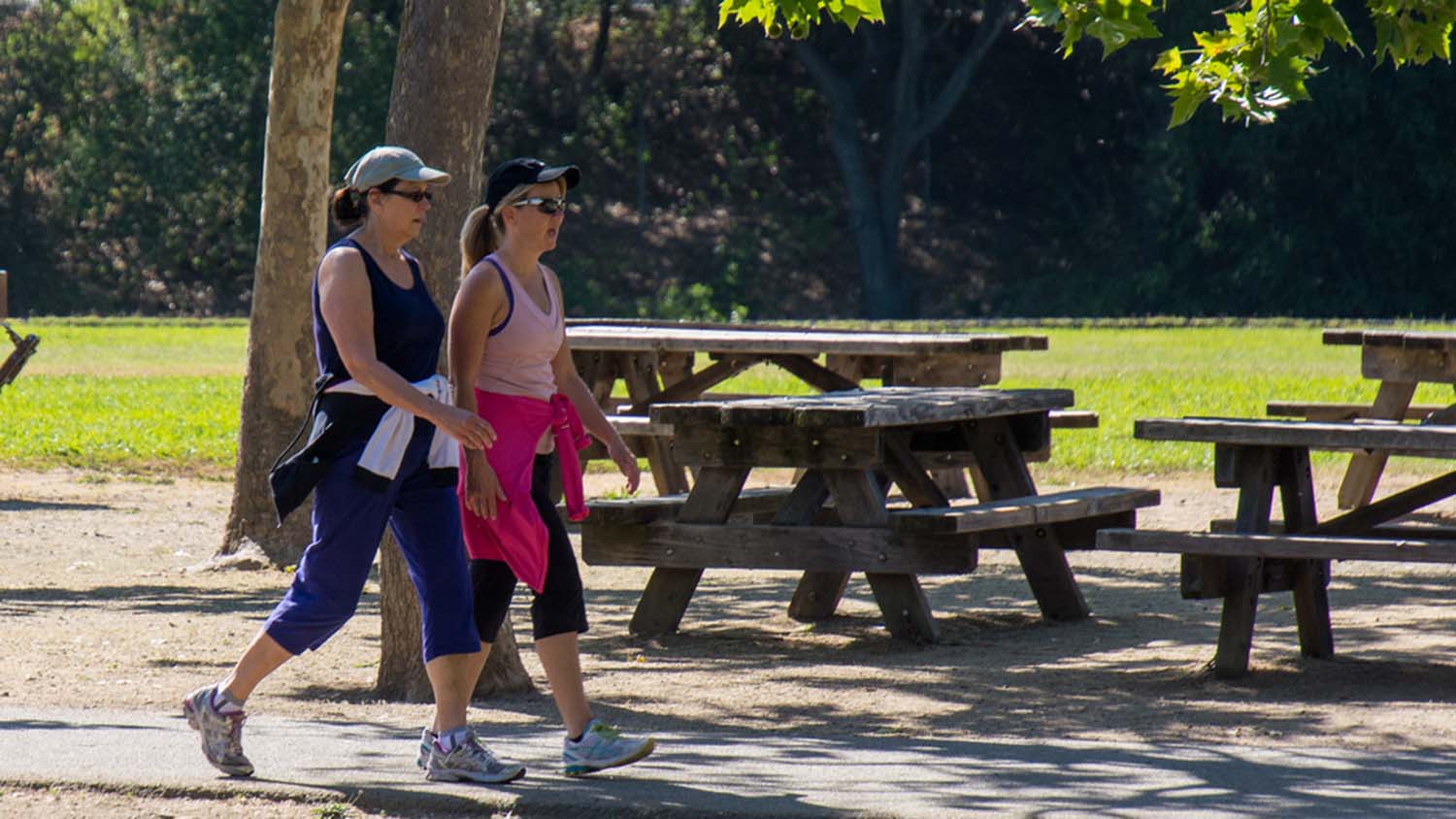Sick and Tired? There’s an App for That

Imagine a world where doctors routinely prescribe outdoor exercise, and a mobile application reminds patients what to do, when and where. That’s the scenario envisioned by Dr. Jason Bocarro, a professor of parks, recreation and tourism management at NC State University’s College of Natural Resources.
The college focuses broadly on reconnecting individuals to the natural world, creating healthier communities and a more sustainable environment. Bocarro’s current work does both. “It’s guided by providing solutions that serve the broader population. We believe a healthier community across the board is going to create a stronger, more vibrant North Carolina,” he said.
Bocarro has personally witnessed family members and friends in health crises when prescribed medications resulted in side effects and the need for additional prescriptions. While he recognizes the place for pharmaceuticals in recovering health, he also champions the need to help urban planners prioritize parks and greenways. In doing so, residents gain increased access to places for mental restoration and physical activity, a proven preventative health strategy.
A Bold Solution
In 2016, health expenditures in the United States lingered above $10,000 per person, according to the Centers for Medicare and Medicaid Services. Bocarro’s hands-on research focuses on preventative care, offering a practical, cost-saving solution.
The project, appropriately named “Thinking Outside the Pill Box,” is a transdisciplinary collaboration with NC State’s Institute for Next Generation IT Systems. The result? Goal Rx, a mobile application building ease and accountability into doctors’ orders for patient activity.
With community partners in NC Division of Public Health, the Center for Disease Control, Recreation Resources Service and Goshen Medical Center, Inc., Bocarro and his colleagues, Dr. Aaron Hipp, Dr. Michael Kanters and Courtney Schultz, a PhD student in the department, tested the application in eastern NC’s Sampson and Wayne counties.
The first patients have completed three months of participation, and researchers are collecting post-data with hopes of finalizing the initial project in 2018.
To begin, programmers loaded Goal Rx with information about county amenities and their attributes as well as resources for physical activity, healthy eating, diabetes prevention and other similar programs. Behavioral health counselors helped patients answer lifestyle questions to input personal information and activity preferences. The application then presented five or six options that correlated to the patients’ goals and preferences, and they chose one.
Effortless Accountability
For example, let’s say a doctor prescribes 30 minutes of exercise five times per week for a patient whose goal is losing 15 pounds. Hiking is her exercise of choice, so Goal Rx recommends several trails in the county, close to where she lives. A Fitbit—given to the patient when she signed up for the program—monitors her activity.
One time each week she gets a motivational text, such as, “Did you hike on the Neuse Riverwalk this week?” If she responds negatively, the next text reads: “Making change is hard. Keep working toward your goal.” When the patient responds positively, it asks the number of times she’s hiked and then congratulates her: “Nice work. You’re doing a great job of creating new habits.”
Patients stay more motivated when they’re accountable, and doctors’ prescriptions combined with the app’s follow-up have potential. They also help patients keep a specific goal in mind. When physicians say, “Get more exercise,” patients may feel overwhelmed not knowing where to start. Goal Rx gives them a specific, measurable target.
It benefits healthcare providers, too, because it puts county resources at their fingertips. When patients need assistance adding physical activity to their weekly routines, doctors don’t have time to sort through countless resources for suitable options. Goal Rx does.
Future-Focused Aim
Looking to the future, Bocarro hopes Goal Rx and other similar initiatives can ease the medical community’s burden by giving physicians tools to help patients take ownership of their health. He envisions people of all ages participating in outdoor activities that become part of their daily lifestyle.
Physical activity buffers against chronic diseases like cancer, diabetes and hypertension. It curbs depression and enhances mental health. Parks and recreation departments play a vital role in safeguarding communities by managing the facilities and amenities designed for physical activity.
Bocarro says, for this reason, it’s essential that discussions about the development of natural lands always include them. “When thinking about land planning and land use, these issues are important because when we lose access to nature, we lose the health benefits it provides. We have to invest in greenways and parks,” he said.
For his part, he’ll keep advocating for built natural environments and the preventative healthcare of active lifestyles. He’ll also continue encouraging his students to strengthen the public’s understanding of parks, recreation and tourism by communicating just how valuable these departments are to the health and economy of our communities and our state.


